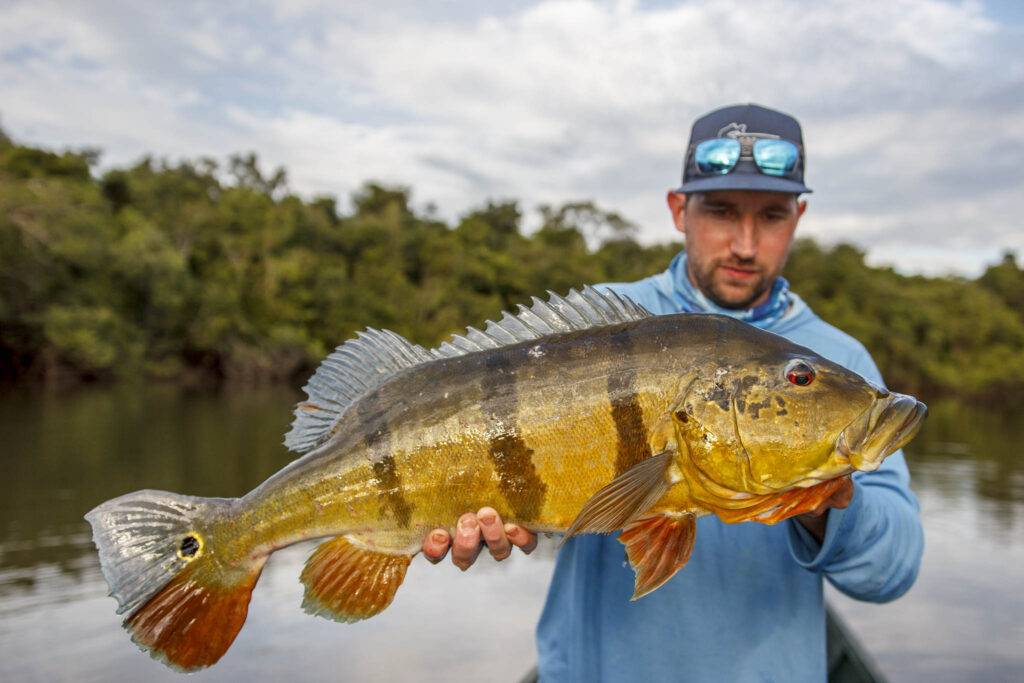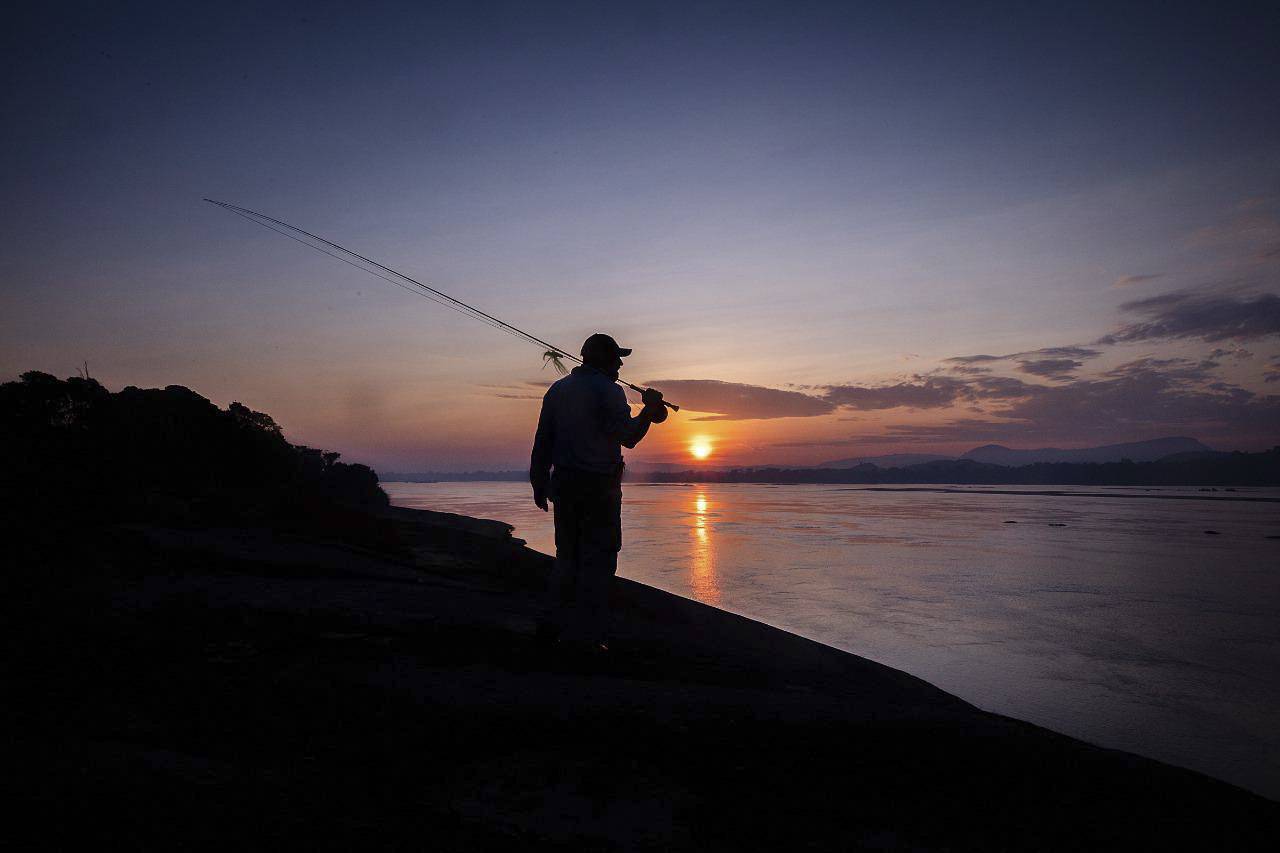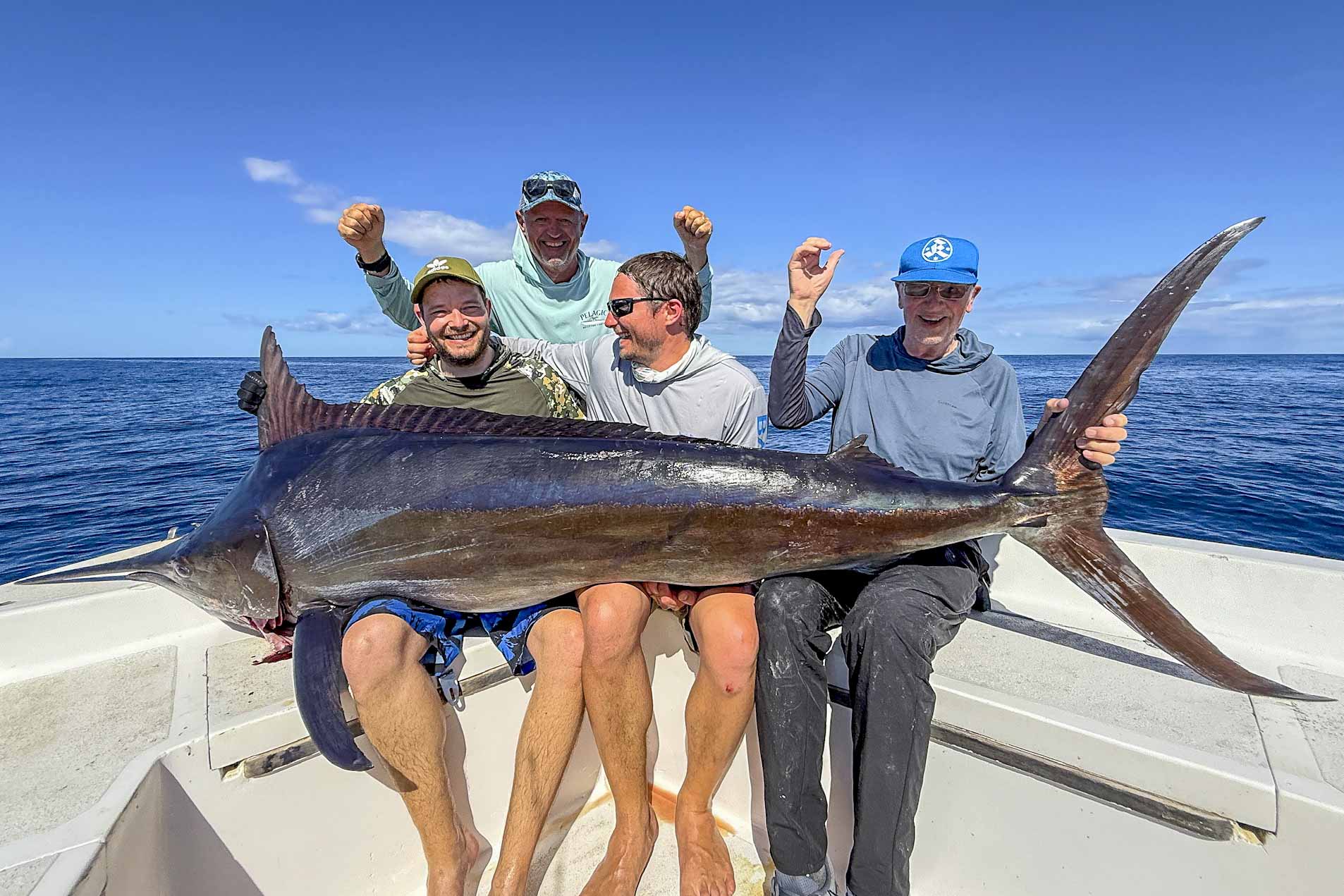Untamed Colombia – Peacock Bass and Payara Fishing Trip in the Heart of the Orinoco
If you’re looking for a fishing vacation off the beaten track, Colombia is the place to go. In the remote border region with Venezuela—where the mighty Orinoco River cuts through dense rainforest—a fishing trip begins that has everything to make a spin fisherman’s heart beat faster: wild nature, complete seclusion, pristine fish stocks – and two absolutely exceptional fish: the colourful peacock bass and the spectacular payara, also known as the sabre-toothed tetra.

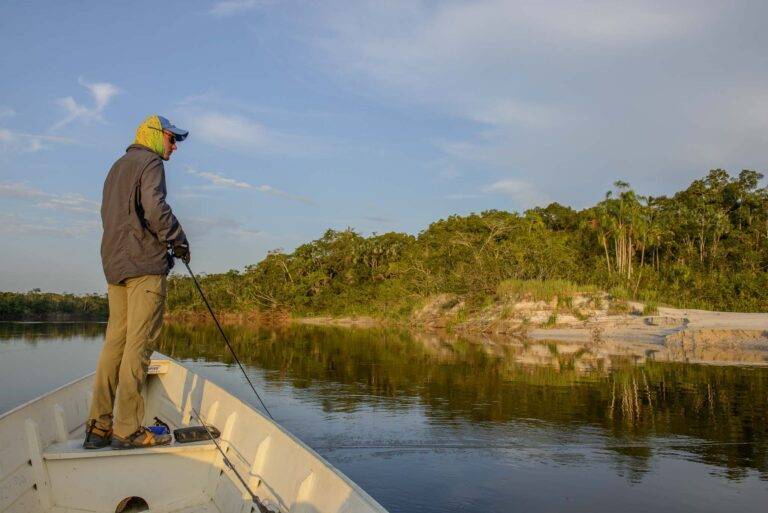
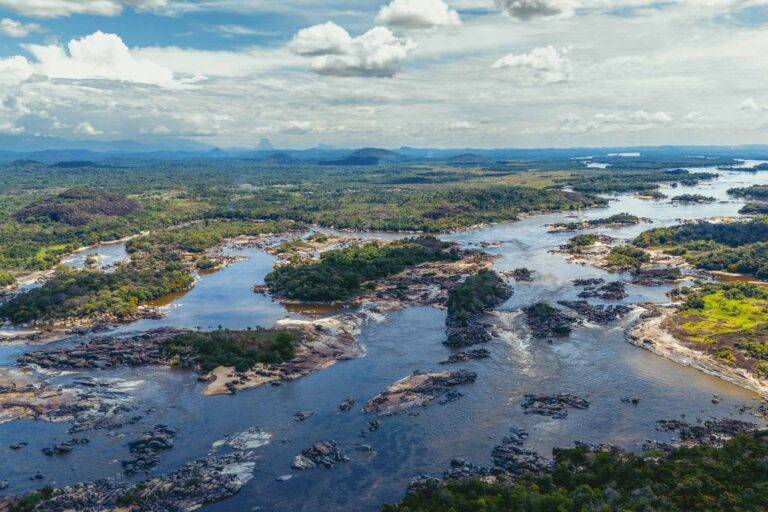
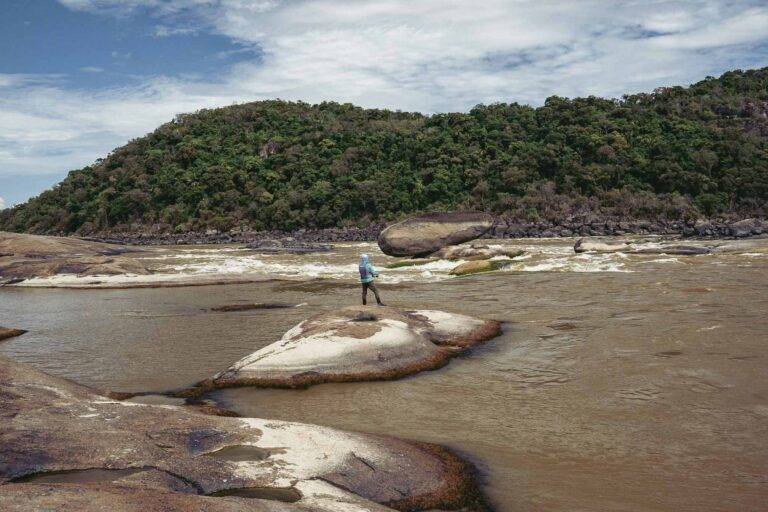
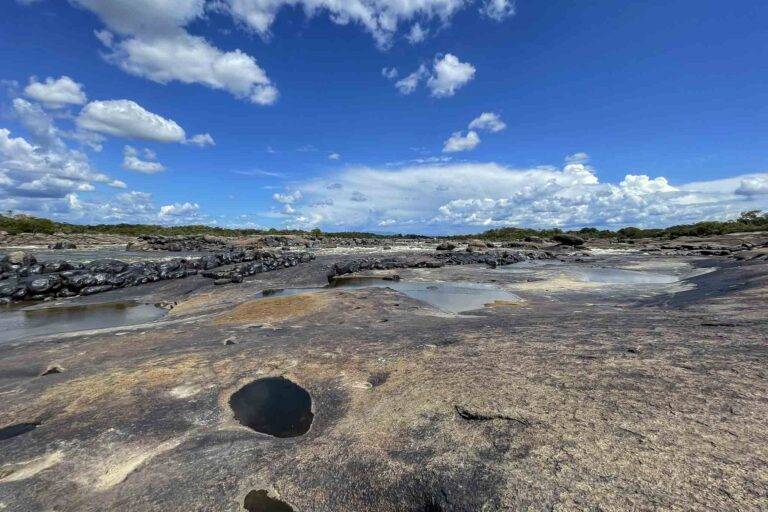
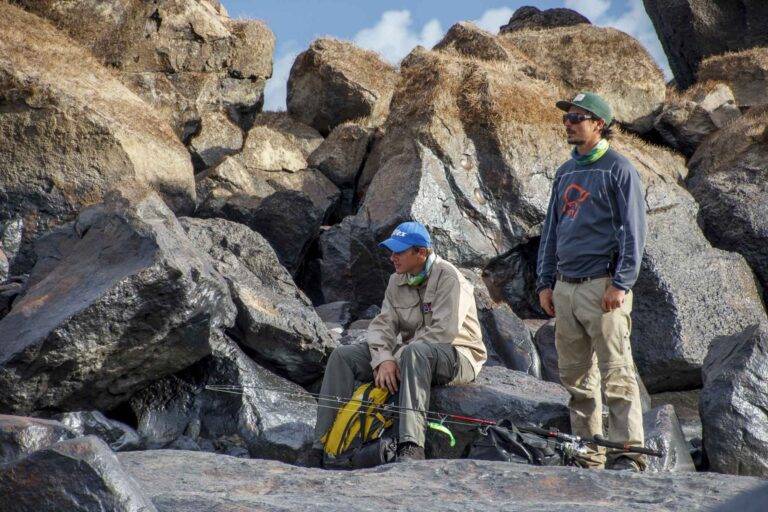

Travel to another world
The journey to this adventure is not easy, but that is precisely what makes it so appealing. After flying to Bogotá, you continue on small planes to Puerto Inírida, a remote jungle town on the edge of civilization. From there, the actual expedition begins: boat trips lasting several hours take you deep into the tributaries of the Orinoco, past shallow sandbanks, mangroves, mirror-like lagoons, and impenetrable greenery. There are no more roads, no infrastructure, no cell phone network. Equipment is reduced to the bare essentials, and everything has to be transported by boat – tents, food, water, fishing gear.
What awaits at the end of this journey is a true wilderness camp. Sleeping quarters consist of simple camp beds under mosquito nets, cooking is done over a fire or gas stove, and washing is done directly at the river. Communication is done with hands, facial expressions, and a few words of Spanish. It is the kind of trip where you reconnect with nature. In the morning, you are awakened by the howling of howler monkeys or the screeching of macaws, and in the evening, the chirping of cicadas creates a pleasant atmosphere.
Peacock Bass – Topwater Explosions!
Many spin fishermen focus on the peacock bass, one of the most aggressive and colorful predatory fish in the world. Its bright yellow, green, and orange tones not only make it visually spectacular, but its behavior is also unique. Anyone who
fishes on the surface with stickbaits, poppers, or floating jerkbaits will experience spectacular attacks. The fish often explodes out of the water, snatches the bait with a splash, and immediately begins to flee wildly. It displays immense power, even specimens under 10 pounds.
In the branching river courses of the Orinoco, peacock bass often lurk in shallow, slow-moving areas – near sunken trees, under overhanging branches, or along sandbanks. The guides know these hotspots and head straight for them. There are often several bites in a row, as peacock bass are social predators – they usually hunt in pairs or threes. The fight is intense, especially when the fish tries to escape into the branches. The equipment must be able to withstand this battle: powerful PE3–PE5 class spinning rods, saltwater-resistant reels, braided line, strong leaders.
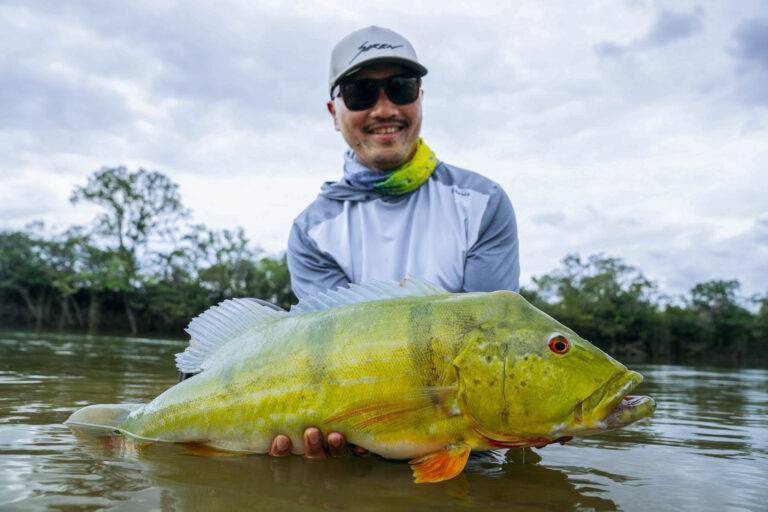
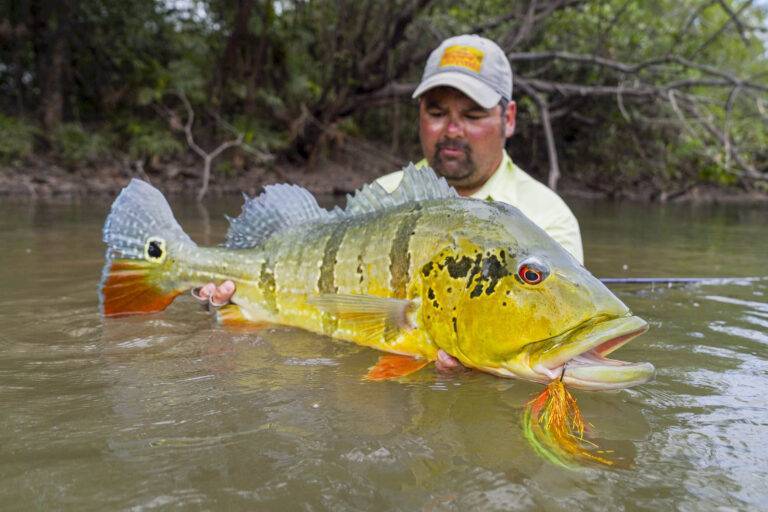
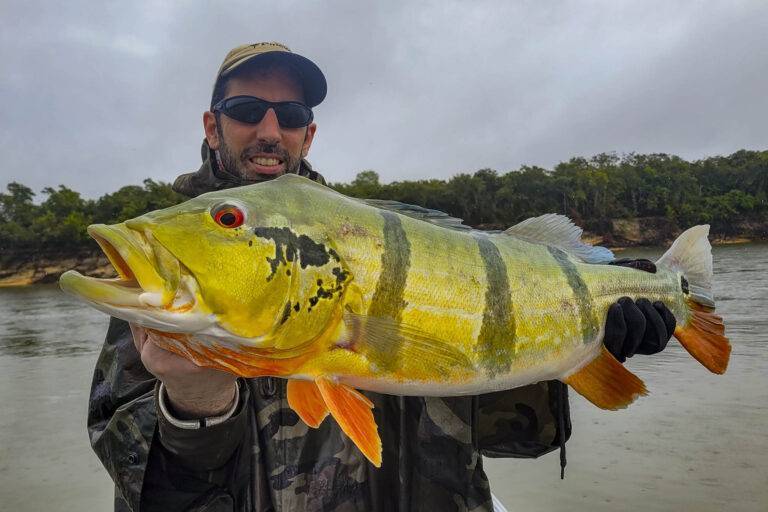
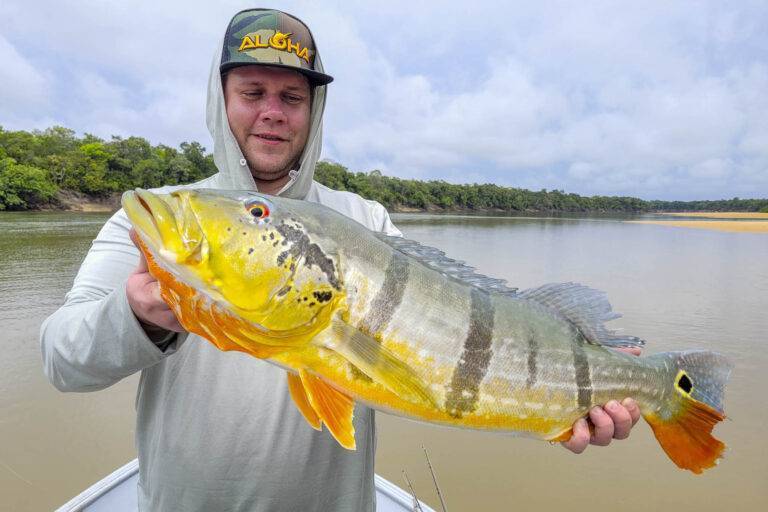
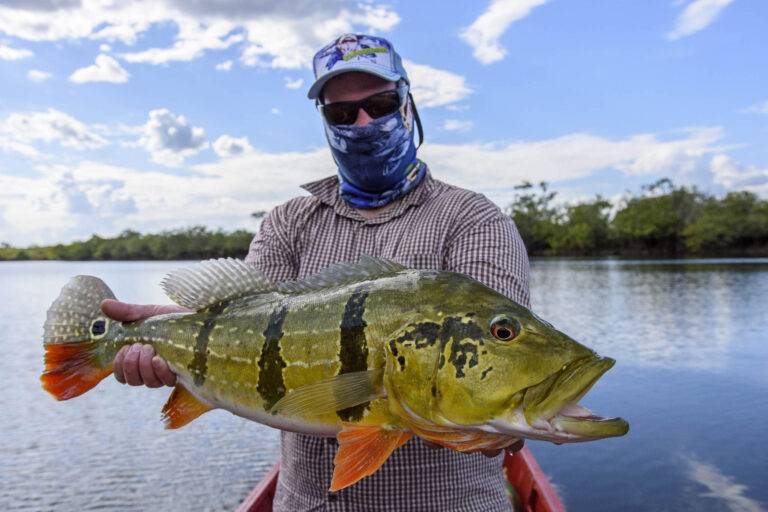
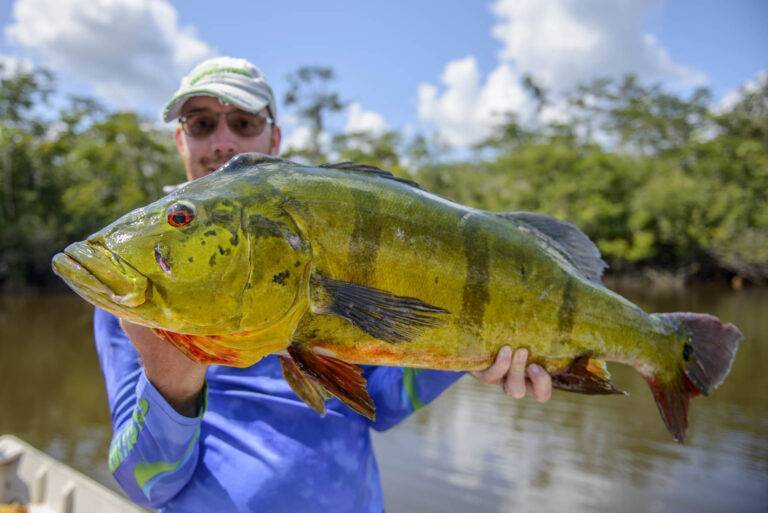
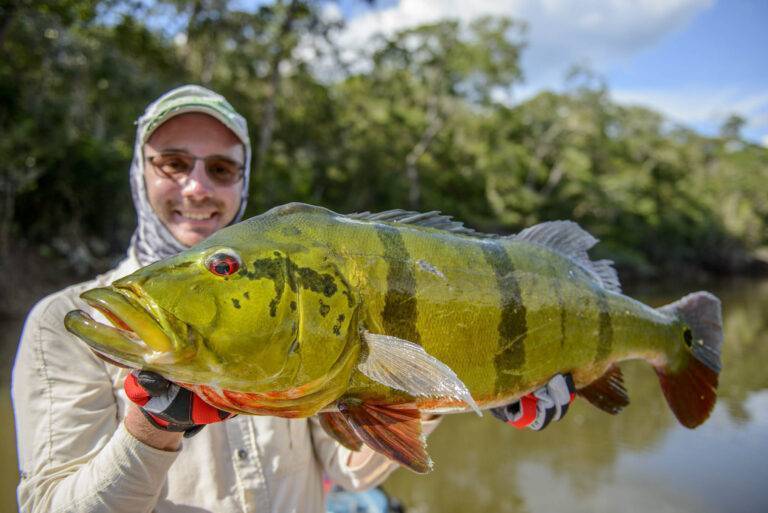
Payara – the saber-toothed killer from the depths
The second star of this fishing trip is the payara. This mystical-looking predatory fish with its knife-like fangs is a true wonder of nature. Unlike the peacock bass, it prefers to live in fast-flowing main streams and rapids. There it hunts smaller fish such as sardines or tetras, and that is exactly where you have to look for it.
The bites of the saber-toothed characin are brutal – it often hits the bait with full force and shoots wildly out of the water during the fight. This is when its long teeth come into their own: they cut through leaders, slice through soft baits, and cause regular hook losses. This makes it all the more satisfying when a big payara is safely landed. The best chances are with fast-moving hardbaits, deep-running minnows, or metal jigs. Important: The equipment must be suitable, as the combination of current and fish power places the highest demands on equipment and technique.
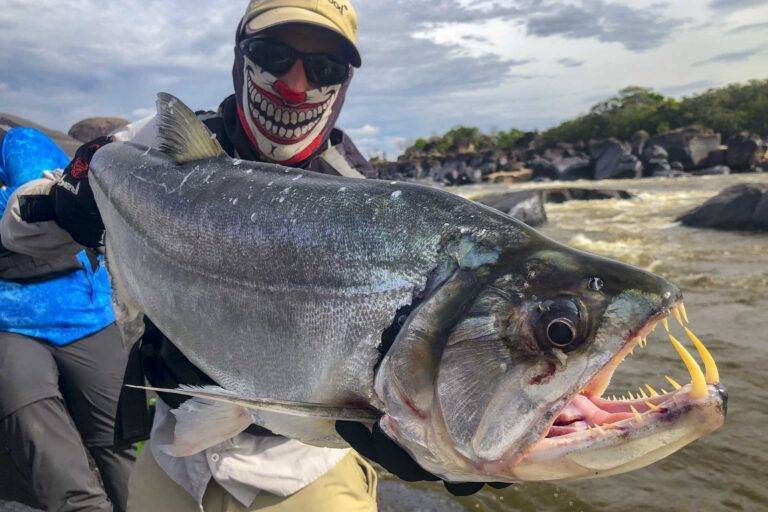
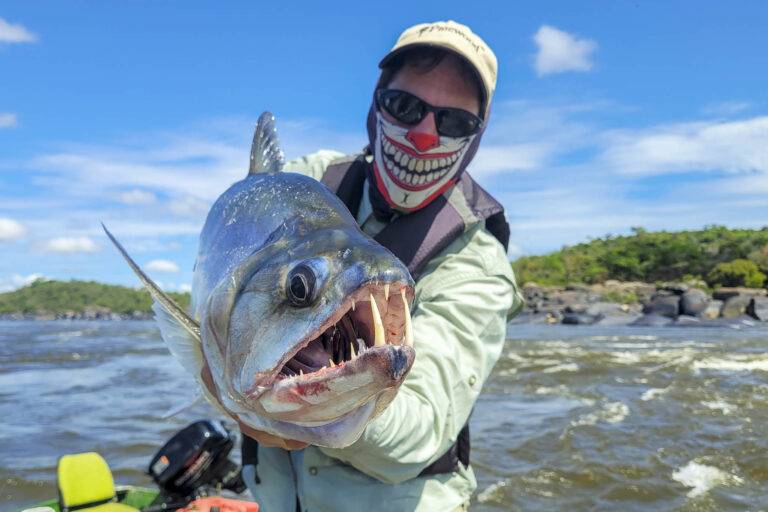
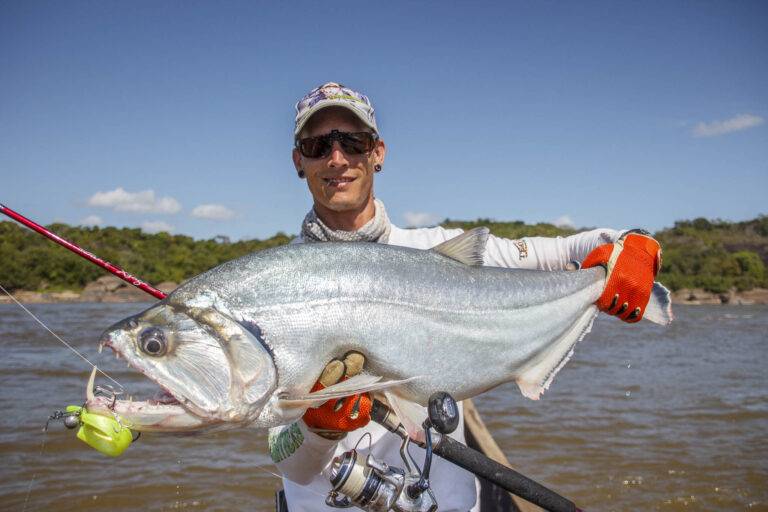
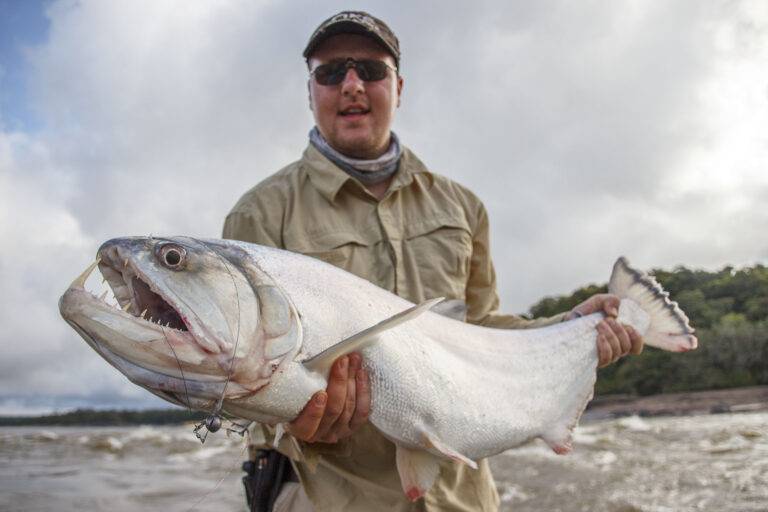
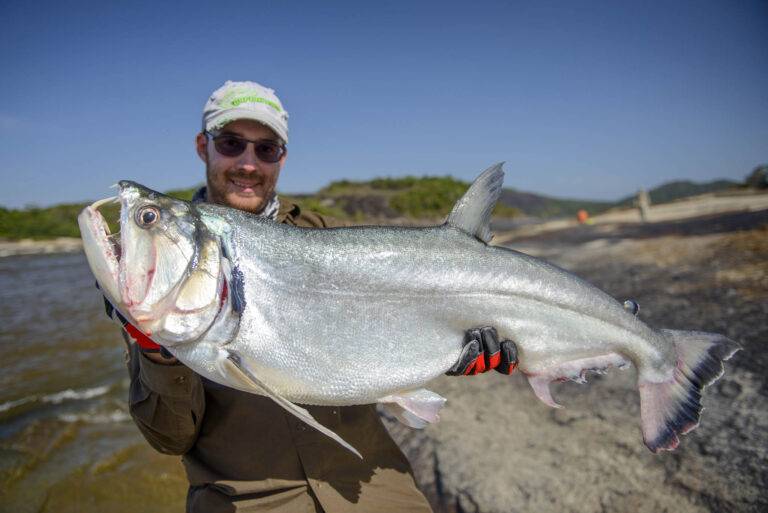
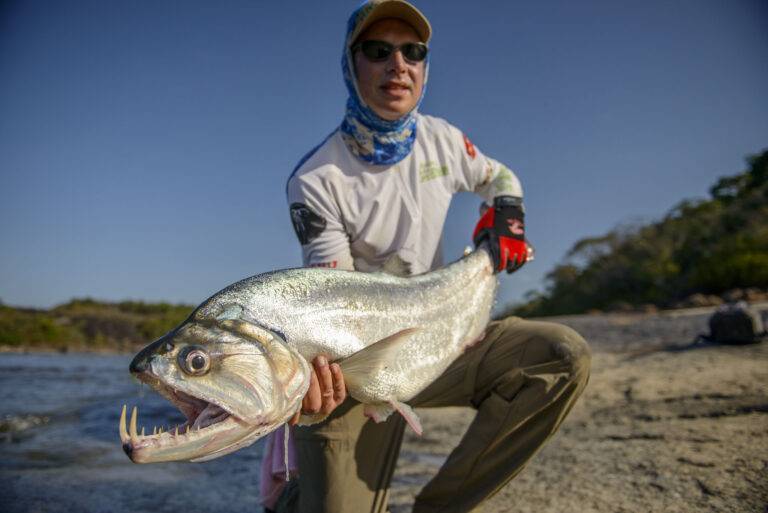
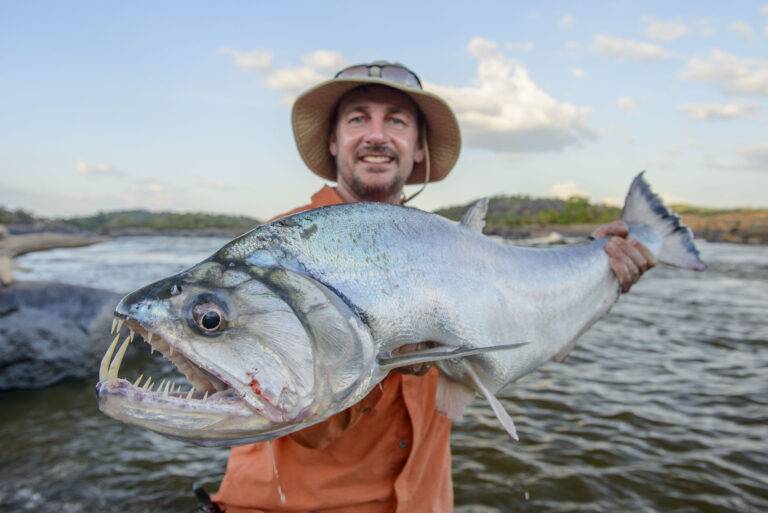
Spin fishing under extreme conditions
What makes this trip so special is the intense combination of nature, technology, and adventure. The conditions are challenging: the sun beats down mercilessly, the humidity is high, and every cast takes a lot of strength. But that’s exactly what many spin fishermen are looking for—a real contrast to overfished waters and monotonous structures.
The water changes drastically depending on the season. During the dry season, the Orinoco recedes significantly, exposing countless lagoons, sandbanks, and side arms. These shallow zones offer perfect conditions for surface fishing. During the rainy season, however, the river swells, structures disappear, and fishing becomes more difficult but also more varied. Experienced guides know how to take advantage of the changing conditions.
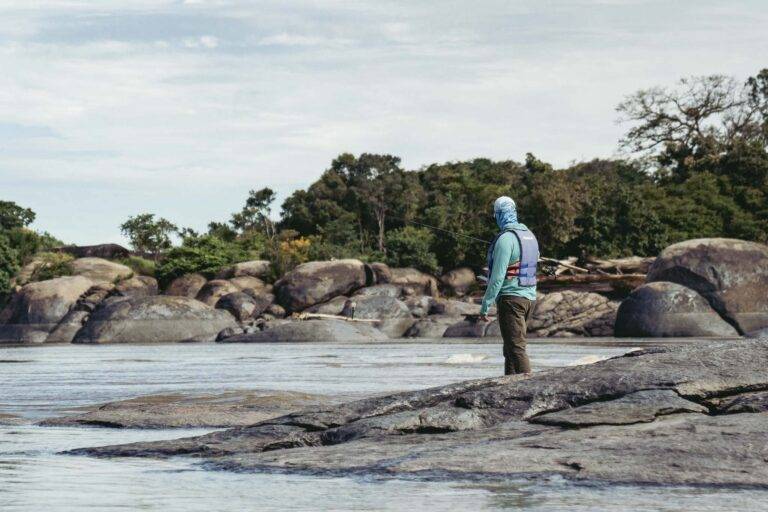
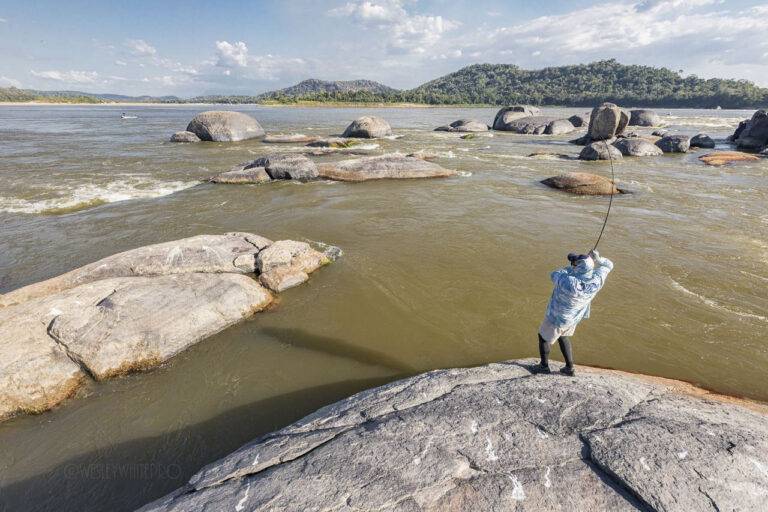
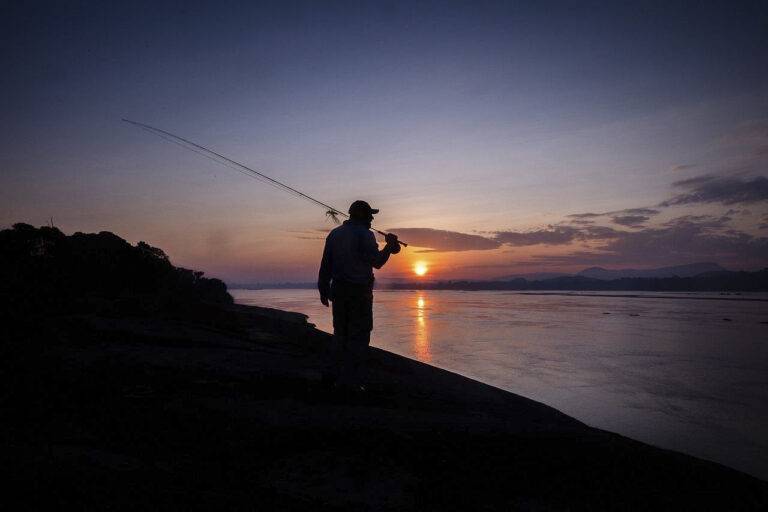
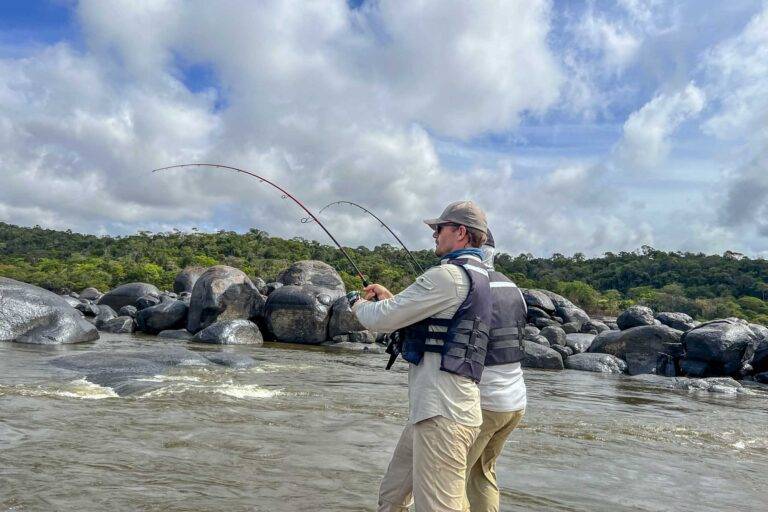
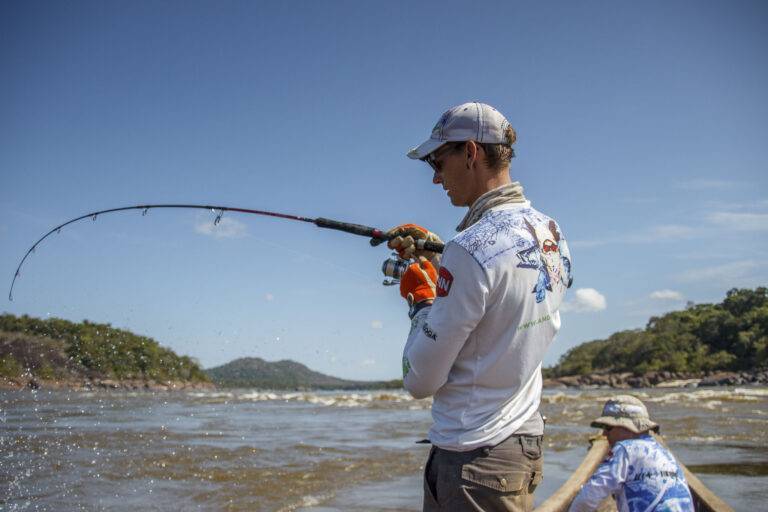
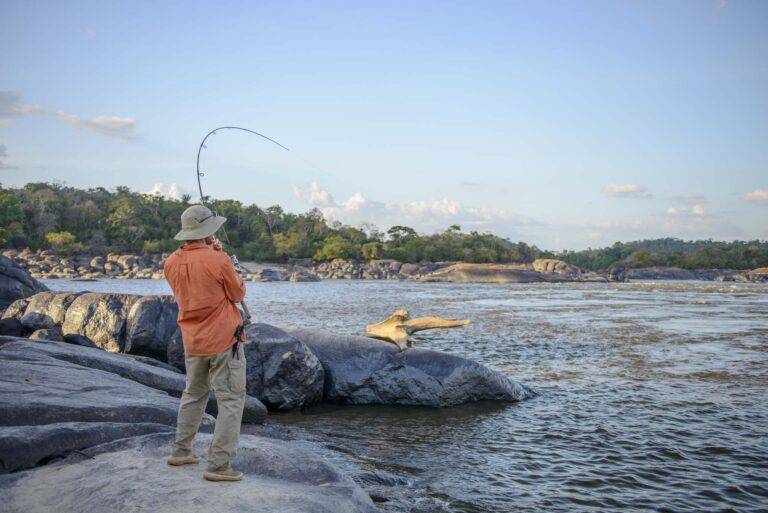
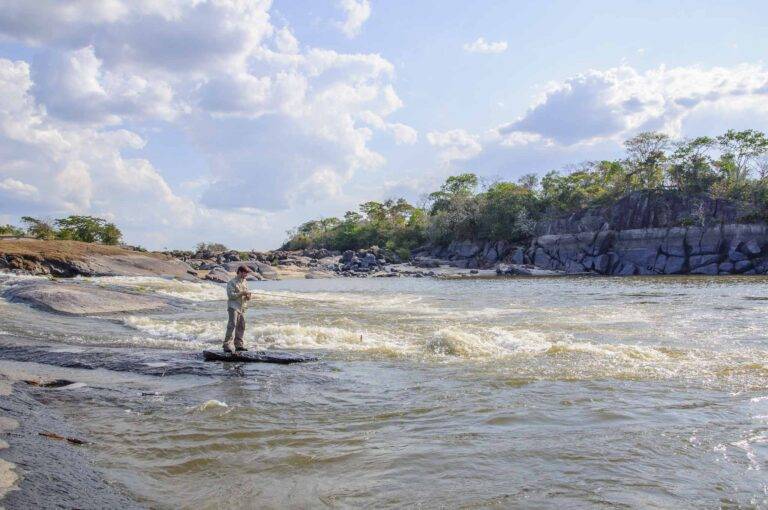
Nature, culture, and unforgettable moments
In addition to pure fishing, this fishing trip also offers many moments of tranquility and connection to the surroundings. Pink river dolphins, toucans, and sloths are regularly spotted. Stories are exchanged around the campfire—about lost monsters, spectacular drills, but also about the lives of the indigenous communities that have used this river for centuries.
Those who travel here are not just going on a fishing trip, but on an expedition – back to the origins, to genuine craftsmanship and to a deeper understanding of nature. The memories you take home with you weigh more than any fish you catch: the moment when the first peacock bass breaks the surface, the adrenaline rush when reeling in a huge sabre-toothed tetra, the feeling of being part of a larger ecosystem for a few days.
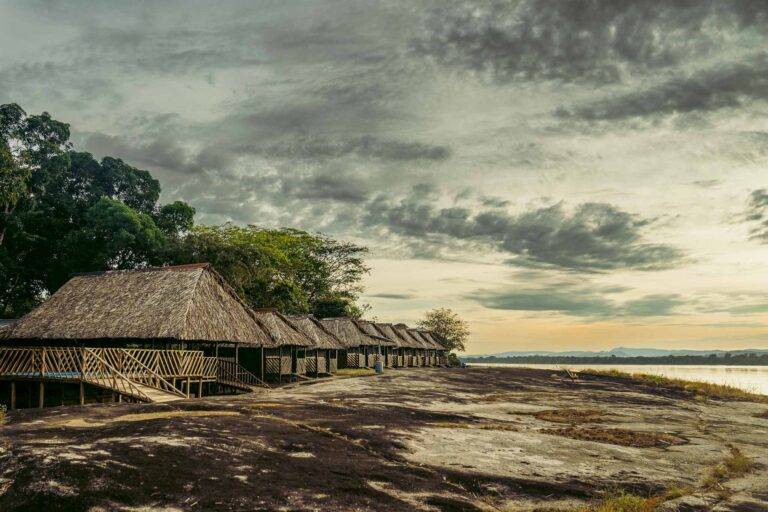
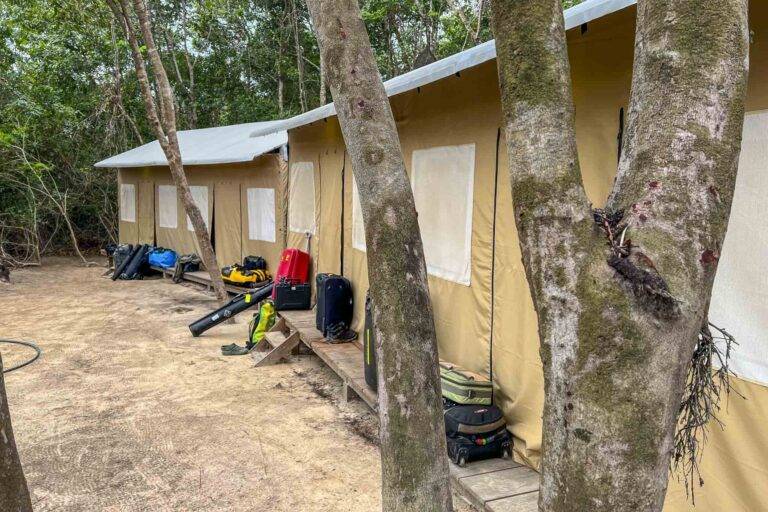
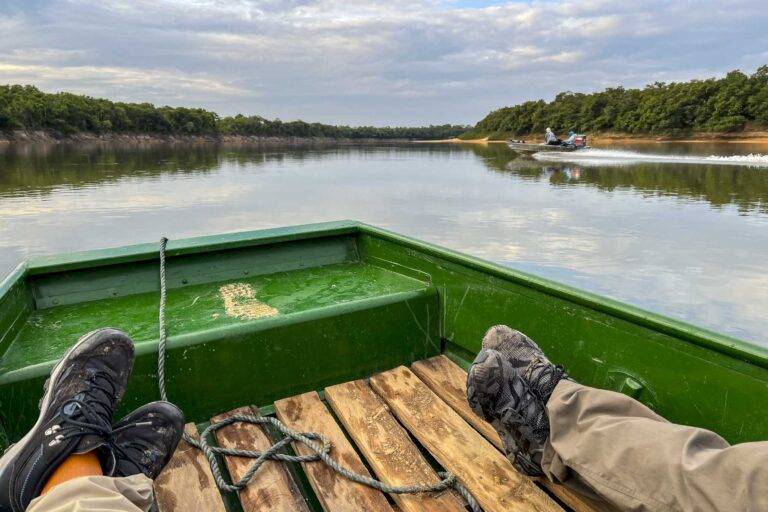
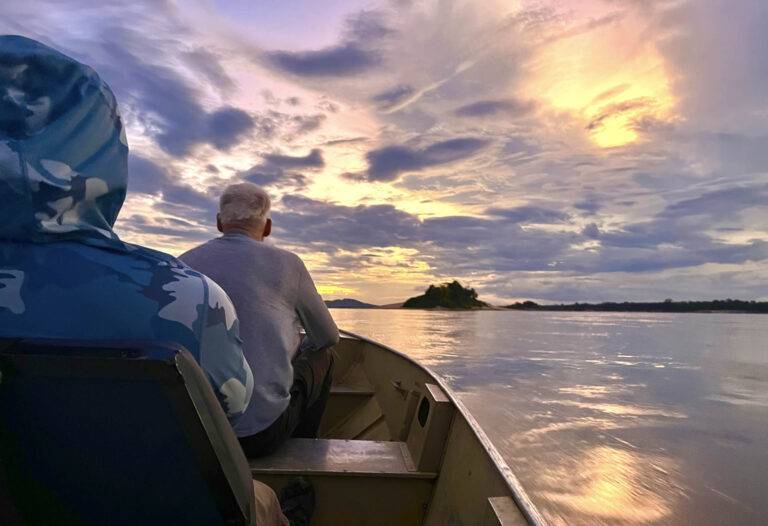
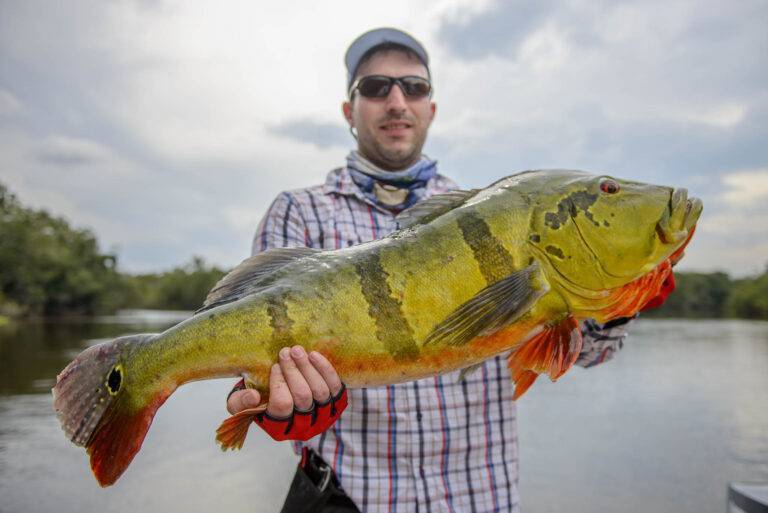
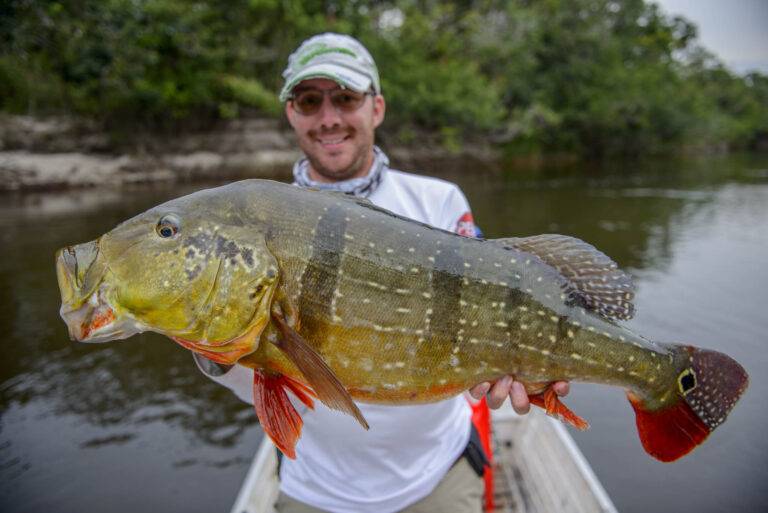
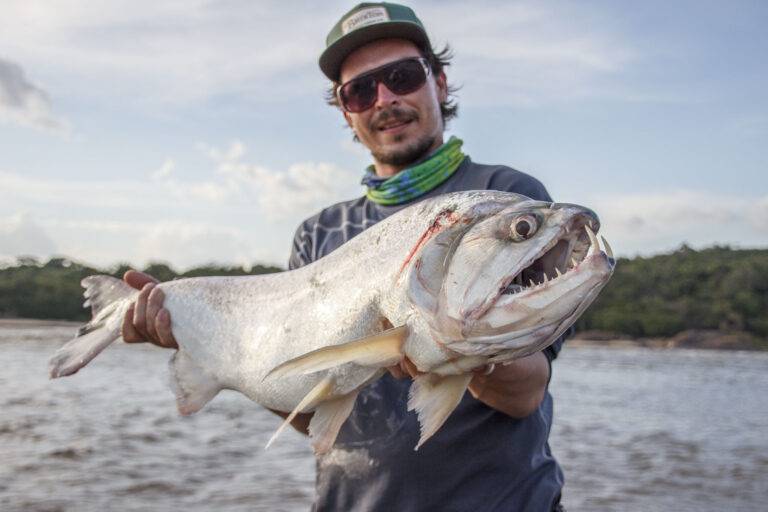
Conclusion
This fishing trip to Colombia is not for anglers who seek comfort. It is aimed at experienced spin fishermen who want to experience nature and fishing in its most intense form. Those who are prepared to embrace the wilderness will be rewarded with unforgettable moments, powerful fish, and a new understanding of fishing.

